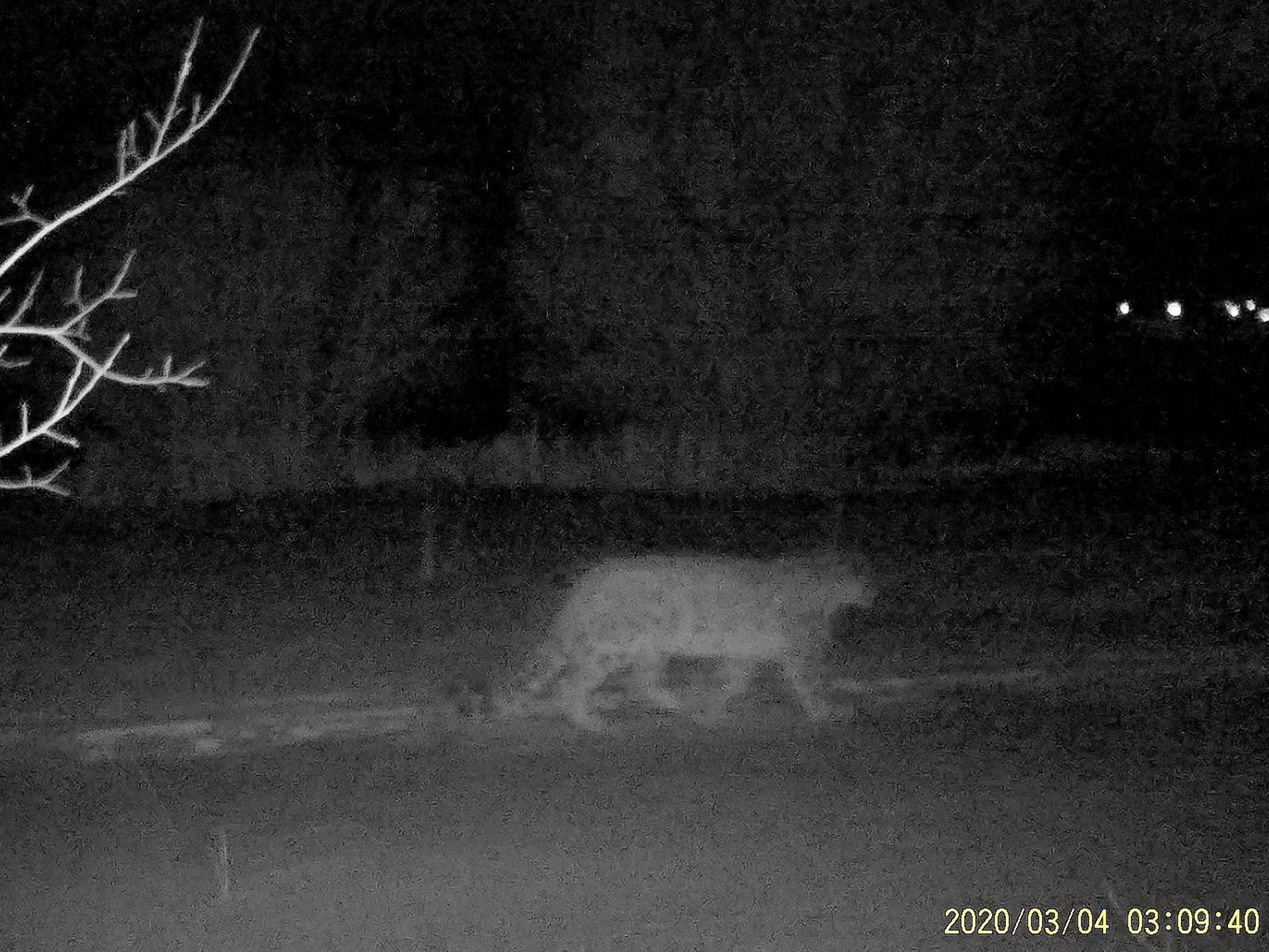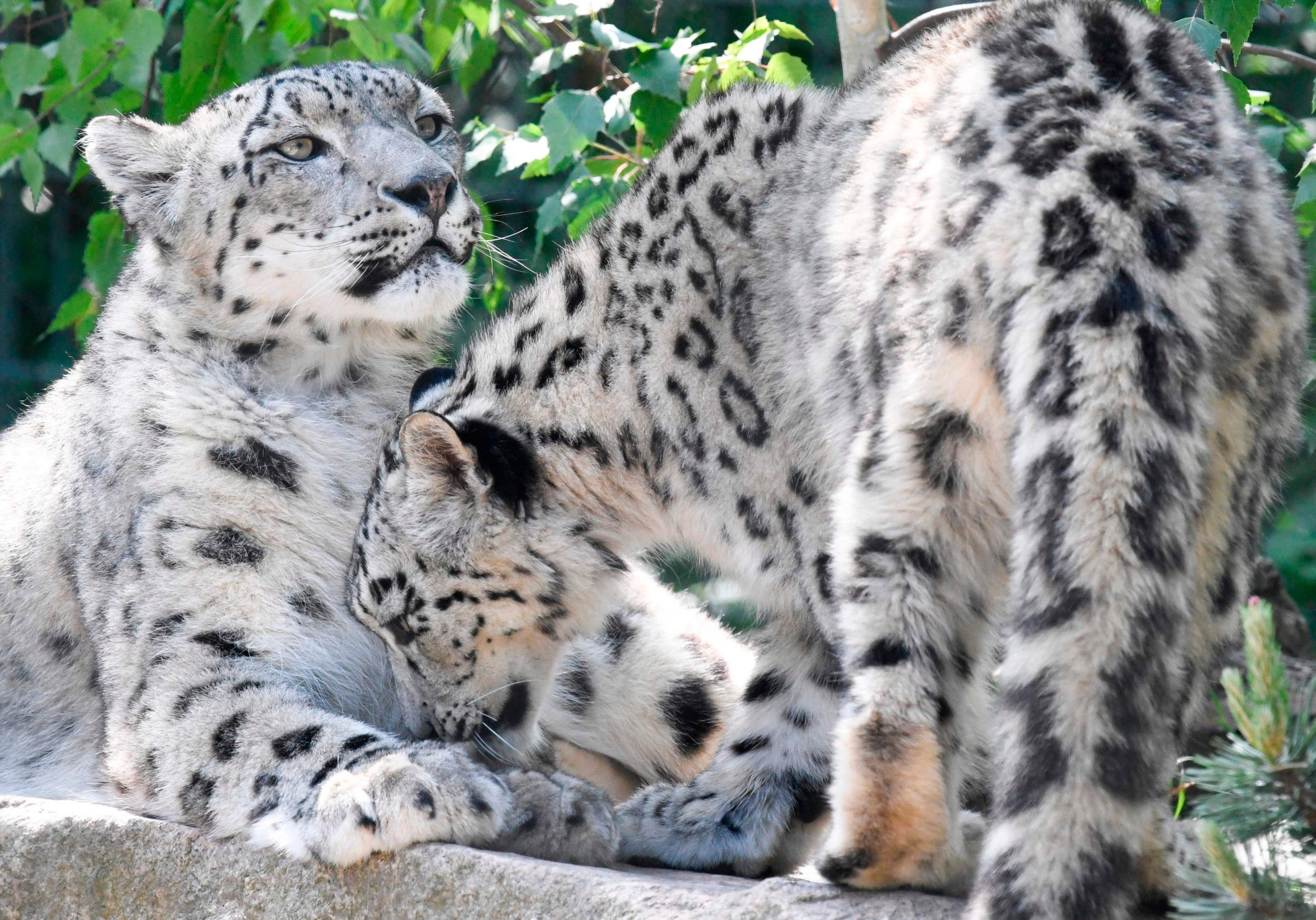Rare snow leopards spotted in popular hiking destination now under lockdown in Kazakhstan
Bears, foxes and mountain goats also seen reclaiming habitat

Your support helps us to tell the story
From reproductive rights to climate change to Big Tech, The Independent is on the ground when the story is developing. Whether it's investigating the financials of Elon Musk's pro-Trump PAC or producing our latest documentary, 'The A Word', which shines a light on the American women fighting for reproductive rights, we know how important it is to parse out the facts from the messaging.
At such a critical moment in US history, we need reporters on the ground. Your donation allows us to keep sending journalists to speak to both sides of the story.
The Independent is trusted by Americans across the entire political spectrum. And unlike many other quality news outlets, we choose not to lock Americans out of our reporting and analysis with paywalls. We believe quality journalism should be available to everyone, paid for by those who can afford it.
Your support makes all the difference.Elusive and endangered snow leopards have been spotted near the city of Almaty in Kazakhstan roaming through a hiking destination that has been left empty due to the coronavirus lockdown.
Footage of at least three big cats – one male and one female with a cub – were captured on a motion sensor-equipped camera trap installed near the Big Almaty Lake by the Snow Leopard Foundation, which works to protect the species.
The snow leopard is an official symbol of Kazakhstan, but just 20 of the animals reside in the mountains near Almaty, which makes the rare sighting even more special, said zoologist Alexey Grachyov.
Mr Grachyov, who works for the Snow Leopard Foundation, told Reuters that it is a common misconception the animals only live at high altitudes. In reality, they live closer to human habitations than most people realise.
“This is a unique population that has adapted to human presence. Every snow leopard probably sees humans, cars, sees the city every day, sees it encroach on its habitat,” he said.
Almaty city is located at the foothills of the Trans-Ili Alatau mountains and is popular among hikers and campers due to the number of multi-level trails available. However, the city has been under lockdown since 19 March and the normally-busy trails have fallen silent.
Other animals have also taken advantage of the absence of humans. The foundation wrote in an Instagram post which showed more animals wandering past their camera traps: “Recently we came back to check our camera traps and got the most incredible shots!
“While Almaty residents were in quarantine, the bears have returned to the city! Also, our camera had captured a female snow leopard with a cub, a fox and other inhabitants of Alatau mountains.”

Out of a global population of less than 10,000 across Central and South Asia, only about 150 snow leopards are left in Kazakhstan. The species is widely distributed across 12 countries in central Asia, including Mongolia, China, Afghanistan, Pakistan, India and Nepal.
Snow leopards are classified as a vulnerable species by the IUCN Red List of Threatened Species. Main threats to the species’ survival include”habitat degradation and declines in prey; depredation by snow leopards on livestock and retaliatory killing; illegal trade in furs, bones and other body parts”.
The Snow Leopard Foundation aims to rebuild the population by breeding and releasing the big cats back into the wild.
Join our commenting forum
Join thought-provoking conversations, follow other Independent readers and see their replies
Comments